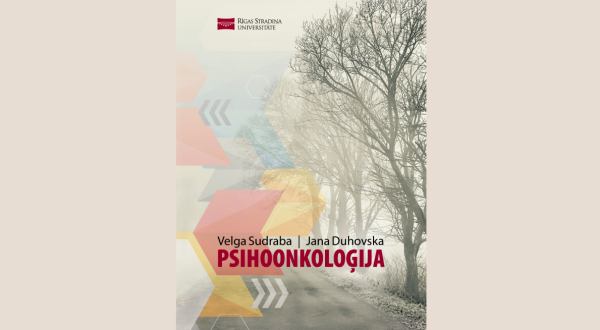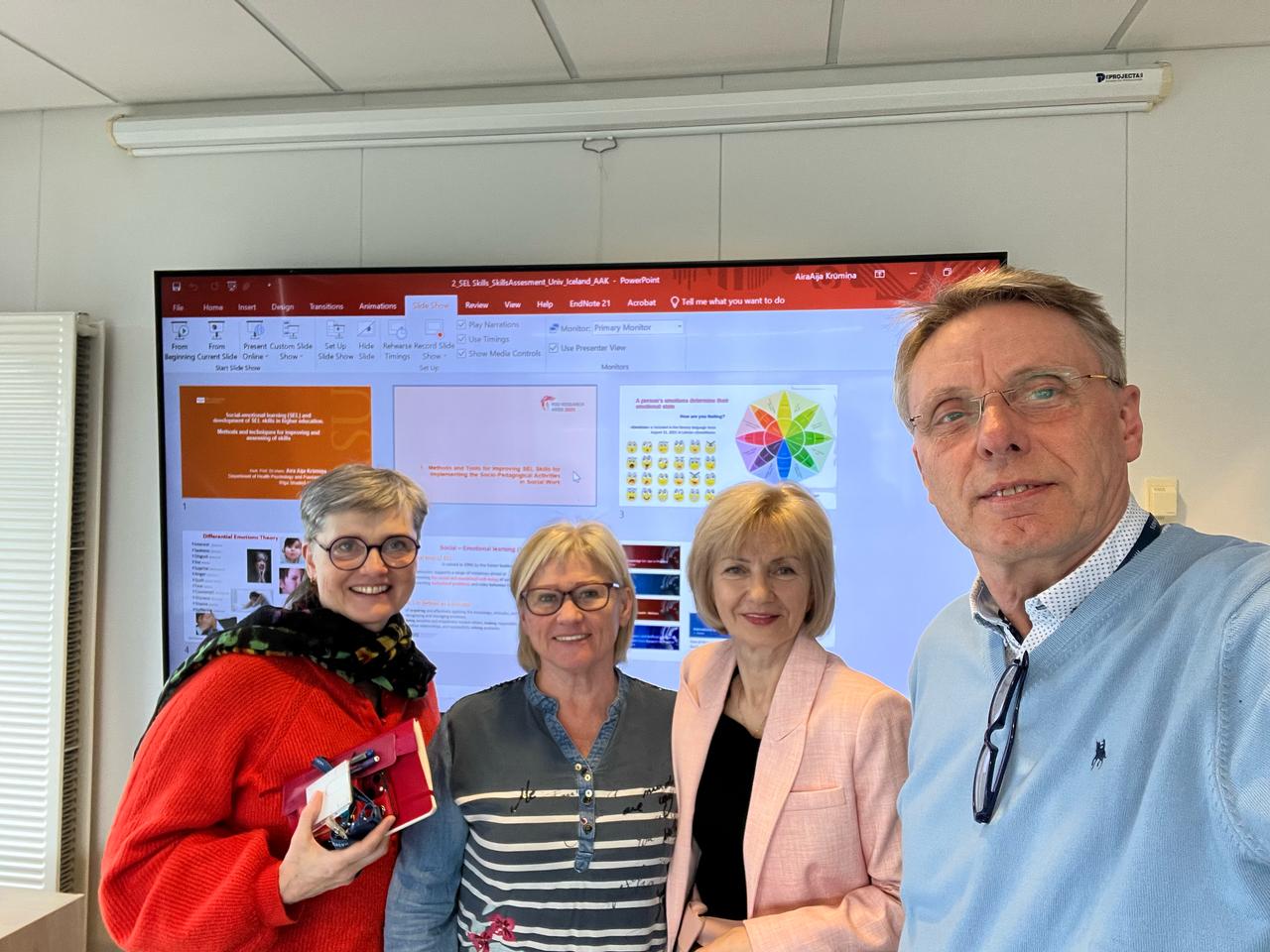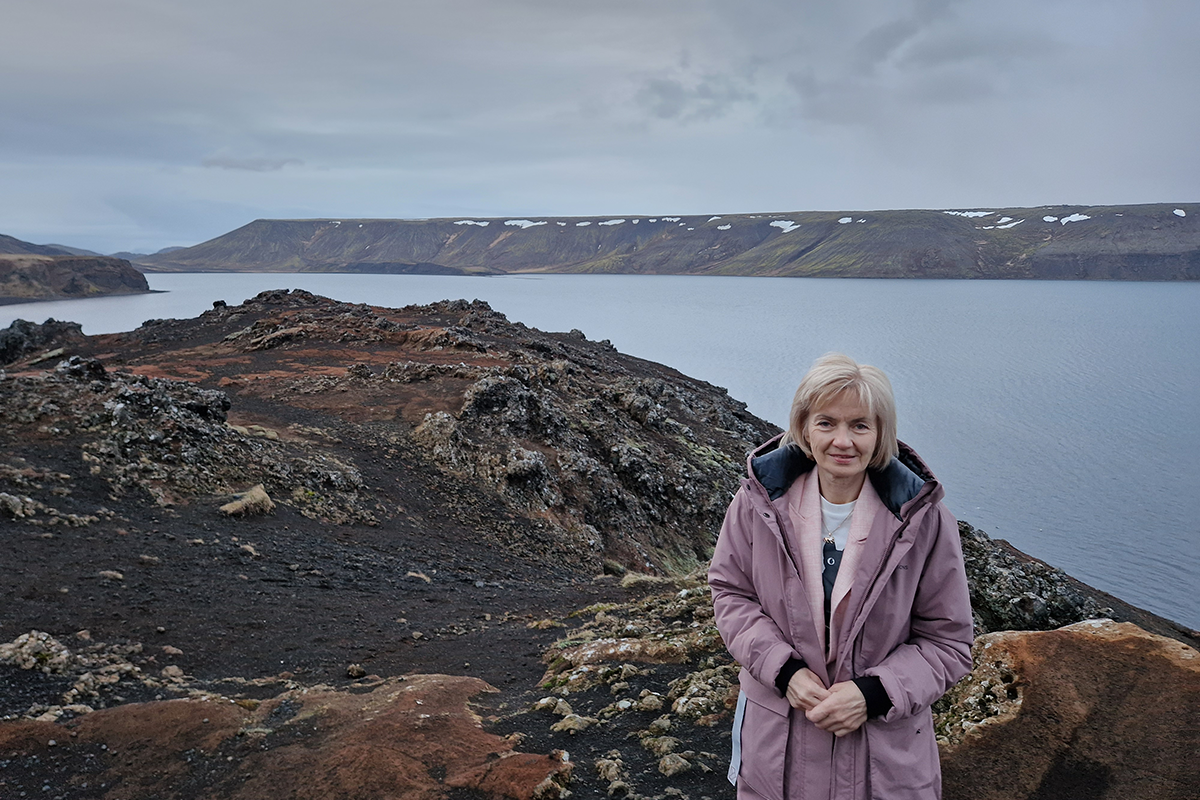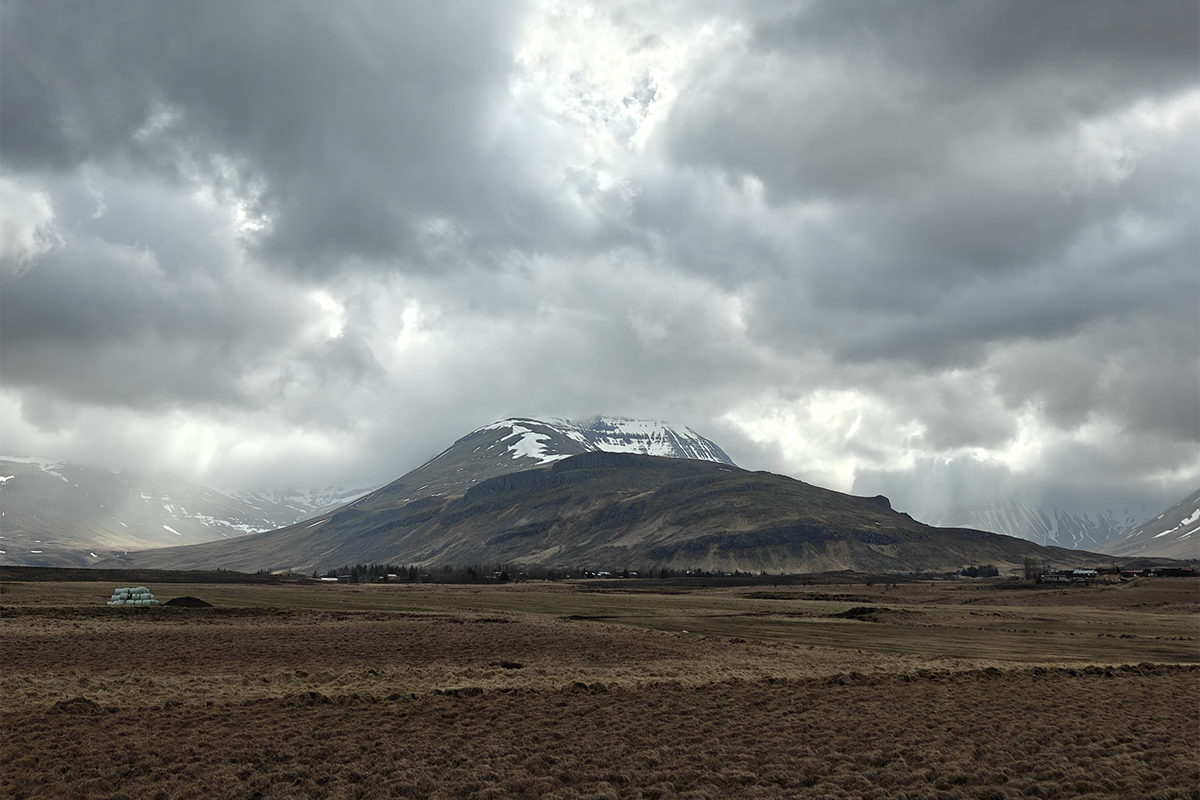Experience exchange in Iceland – student-centred approach, social-emotional learning and collaboration for the future
Asst. Prof. Dr. chem. Aira Aija Krūmiņa of the Department of Health Psychology and Paedagogy, Rīga Stradiņš University (RSU), has recently returned from a teaching visit to the University of Iceland, organised within the Erasmus+ programme.
During the visit, RSU’s partner institution was introduced to the core principles of the student-centred learning and teaching approach, serving as the leading teaching approach at RSU.
One of the key challenges in higher education is to assess how many and what kind of specialists, and with which skills will be needed for the future society. These needs must be anticipated today in order to find appropriate answers to future questions in the development of pedagogical excellence – such as what methods and didactic techniques to choose; what students expect from their lecturer and what employers and potential clients/patients expect from new or already practising professionals?
Krūmiņa delivered several lectures and practical sessions. One of the key topics of the joint discussions was related to the implementation of the principles of a student-centred learning and teaching approach in practise, sharing RSU’s experience in the implementation of pedagogy study courses in bachelor’s and mater’s study programmes for lecturers at the School of Education of the Faculty of Education and Pedagogy at the University of Island.
The second thematic direction focused on Social Emotional Learning (SEL) for lecturers and students at the School of Social Sciences of Faculty of Social Work at the University of Iceland, exploring methods and techniques for developing and accessing SEL skills, while highlighting the importance of environmental and health sustainability principles for the development of SEL skills in higher education.
Krūmiņa is pleased that her colleagues were highly engaged by the topic of SEL teaching and the development of SEL competencies, as well as by the principles and practical examples of how to implement the student-centred learning and teaching approaches specifically within pedagogy-related study courses.
The fundamental question in the pedagogical discourse is how to make the study process, and the communication between students and lecturers as productive as possible in the context of boundless access to information and ongoing digital transformation? What? How? When? And how much should be provided to the student in a ready-made form, and what should be left for independent learning?
Krūmiņa emphasises: ‘No matter which study course we teach or how deep or academic the topics we choose to explore are, the foundation lies within our pedagogical knowledge and excellency as lecturers. If we speak to students in a language they do not understand, there will be no meaningful outcome. The same applies to the specialists we educate - if they lack pedagogical knowledge and an appropriate approach, they will find difficult to communicate with their clients or patients, and the intended goals of their professional activities will not be achieved. It is difficult to compare pedagogical positions in Latvia and Iceland, as we are engaged in a shared, similar mission. This creates a comparable framework and context for both teachers and social workers. I would certainly like to see continued development of exchange opportunities for both students and academic staff. Professionals in assisting professions will always be needed - and this applies to all countries. There have been many experiences and impressions. The mutual exchange of opinions further strengthened my conviction that we are on the right path and think along similar lines.’
Expanding the perspective of pedagogy beyond academics – to both students and all of us involved in lifelong learning, Krūmiņa notes: ‘Once again, I was reminded that our lives are shaped by personalities – by who we are ourselves and by the people we choose to meet. One key message I try to pass on to students in my courses is this: pedagogy is not only a science; first and foremost, it is an art – the art of learning and teaching, the art of living, working, leading, the art of guiding others, and the art of finding time for oneself. Of course, in life, this isn’t always working like this, but there is always something to strive for.’
Reflecting on the destination she visited, Krūmiņa shares with us: ‘This was my third time in Iceland. A harsh yet beautiful land where one truly comes to understand the fragility of the relationship between man and nature, and the immense power of nature. It is a place where the wind blows away all gloomy thoughts - whether you are standing by the ocean, in an open field, or on a mountain top. A land of high-quality roads, clean and delicious water, deep and beautiful lakes, numerous hiking trails and geysers, an active, pulsating and steaming land. A land of active, enterprising people who have learned how to live in harmony with nature and successfully use it to strengthen their health and well-being. I visited Grindavík, where an active volcano was erupting just a few months ago. Today, the only traces of the event are the frozen black lava flows, road surface with different coloured asphalt, and, in places, still steaming ground.’
The visit concluded with a discussion with colleagues from the School of Health Sciences on their experience in organising study placements, developing methodological materials, as well as implementing study courses in the Health Psychology and Social Work master’s programmes. Future cooperation is planned, which will include student and staff mobility activities, joint projects and research in the aforementioned areas, exchange of experience in seminars and participation in conferences.
Related news
 Book on psycho-oncology: resource for studies, professional practice and patient supportPsychology, For Students, Books
Book on psycho-oncology: resource for studies, professional practice and patient supportPsychology, For Students, Books





